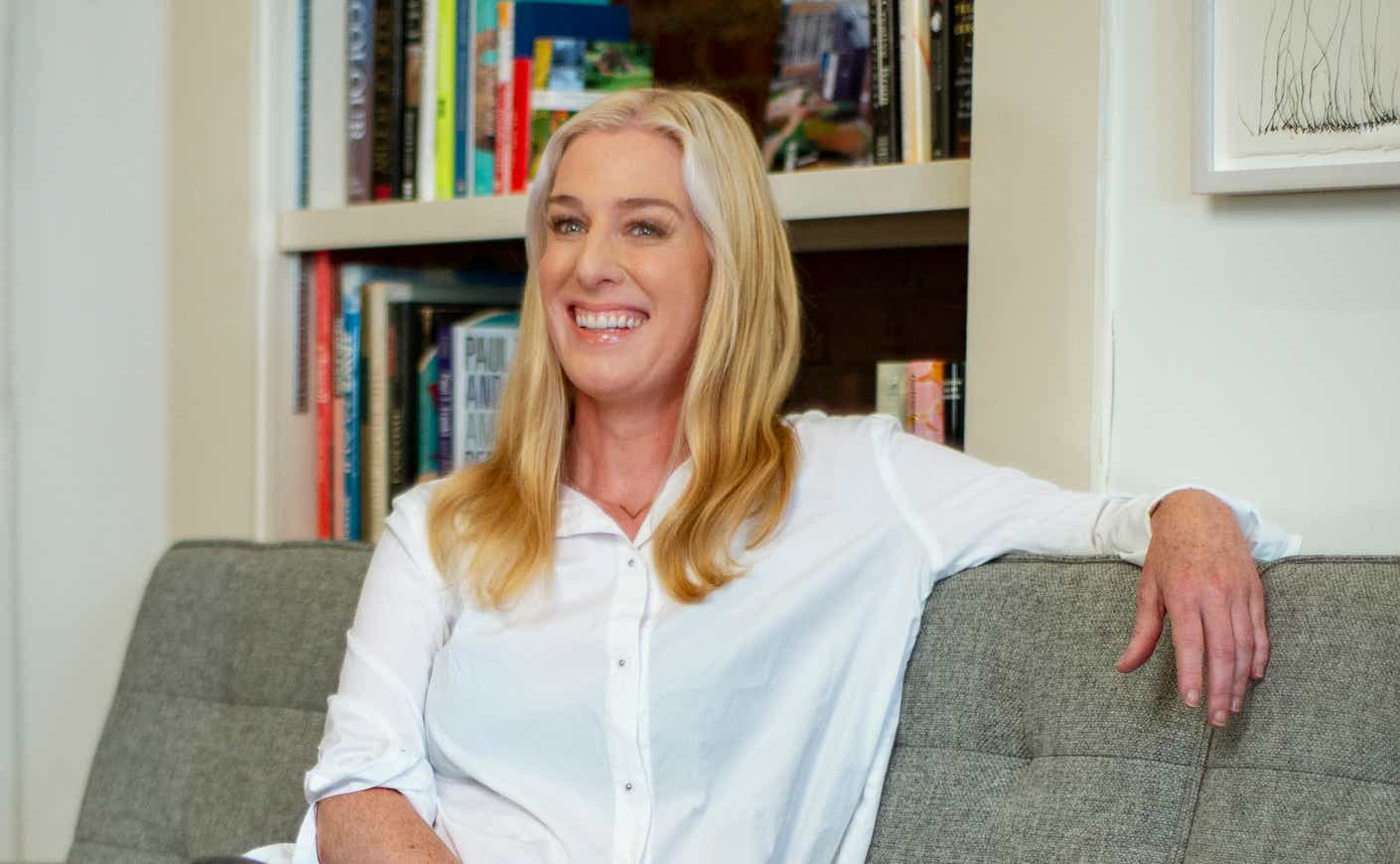Women lead less than 50 Fortune 500 companies. Up top, the gender gap is real — and it’s only worsening for all women amid our current “she-cession.”
For some perspective, we reached out to Victoria Montgomery Brown, the founder of Big Think, a collection of experts at the top of their fields. She’s out with a new book, Digital Goddess: The Unfiltered Lessons of a Female Entrepreneur, which maps her journey to co-founding Big Think in 2007, and reveals lessons she’s learned around the way. She explains why she’s been called the “anti-Elizabeth Holmes,” and reveals some help advice for aspiring female entrepreneurs.
***
Wake-Up Call: You’ve been called the “anti-Elizabeth Holmes.” Why’s this? What are the top values you hold as an entrepreneur?
Victoria Montgomery Brown: Transparency is a must as an entrepreneur. Building trust among stakeholders in your organization is not a guarantee in the least and it is something to be guarded at almost any cost once garnered. I’ve been called the anti-Elizabeth Holmes because that’s how I operate and she did not. For context, Elizabeth Holmes started Theranos, a company that contended it could do significant diagnosis with a drop of blood. Elizabeth did not alert her investors, her clients and most of all the actual patients/people using her device to actually provide medical data that it was to a large degree, bogus.
And, now she’s facing criminal charges and likely jail time. Early on, after starting Big Think and just before our public launch, I had a very difficult situation arise which could have called into question my ethics, as well as made our investors lose total faith in me. And, on launch day we were to have a major New York Times article in the business section on Big Think and a focus on one of our notable investors. Not good. I had a choice, I could pretend nothing was going on, sweep it under the carpet, or I could be totally transparent. I had no idea how the investors would react. I came to them swiftly, with the hard truth of my predicament, which involved the NYPD. To my great surprise, because of my total transparency, their trust in me grew. They knew that I would come to them with the hard truths swiftly and with brutal honesty. I bet if Elizabeth Holmes had been straight up that she didn’t have a viable product early on, she would have received support from her board and investors, and not be facing major litigation.
Tell me about your journey to founding Big Think. Had you always known you wanted to found your own company? What led you to go with it?
As I entered adulthood and my first “real” jobs (beyond things like telemarketing in high school — a job I strongly advise if you want to learn how to deal with rejection), I had an inkling I’d be an entrepreneur. In 2006, there was a dearth of thoughtful video content on the internet, and saw an opportunity to create some with the leading thinkers, influencers and do-ers of our time — from Elon Musk, Barbara Corcoran, John Legend to Nobel Laureates and thousands more. We wanted to provide our audience with actionable knowledge from people who are doing extraordinary things.
Your book is a guide to building a company in “a world that’s not always fair, predictable, or politically correct.” What are the top lessons you’ve learned as a female entrepreneur along the way?
The thing is, no matter who you are, a kick ass idea, a potentially viable and big enough market, the ability to harness the resources you need to get the idea off the ground and then executing is fundamental no matter of gender. I’ve learned as a female CEO that command and control is not necessary to garner respect as a leader and in fact is likely detrimental.
Being softer, more empathic and my authentic self, often leads our team to positive results. Also, it’s way more pleasant for those working with me.
Could you describe a lesson you’ve come across that surprised you most?
Saying no is never easy. But, if the answer is no, the sooner you say it, the better it is for all involved. Example: we had a potential adviser early on who started calling himself partner in the business. We didn’t want him, but let it linger. It caused unnecessary anxiety and a quick, “I don’t think so” would have served us well. That’s another lesson — saying “I don’t think so” gets the no across clearly but less harshly.
One of the points in your book is that ‘the power and money still lie with men. Pretending it’s not that way, or being angry about it, won’t lead to success.’ What advice do you have for women who are, say, fed up about living in a man’s world?
Get over it and focus on what it is you want to do. Where we focus is often where we end up going — it’s an analogy used in skiing; if you are looking at the tree you don’t want to hit, you are more likely to hit that tree. Be optimistic and a pleasure to be around, with confidence and charisma. Be your true self and work your ass off.
As we’re currently in what experts call a “she-cession,” female empowerment in the workplace is more important now than ever. We already had a long way to go before Covid-19 hit. What do we need to see companies themselves do more of now than ever before, to make sure women are set up for success?
As ever, companies need to find and attract top talent, both women and men. I think there is likely more opportunity for women than men these days in companies to get ahead. Women leaders in business are coveted: companies should make their workplace a great place to be, be mission-driven and compensate women equitably. Simple.













